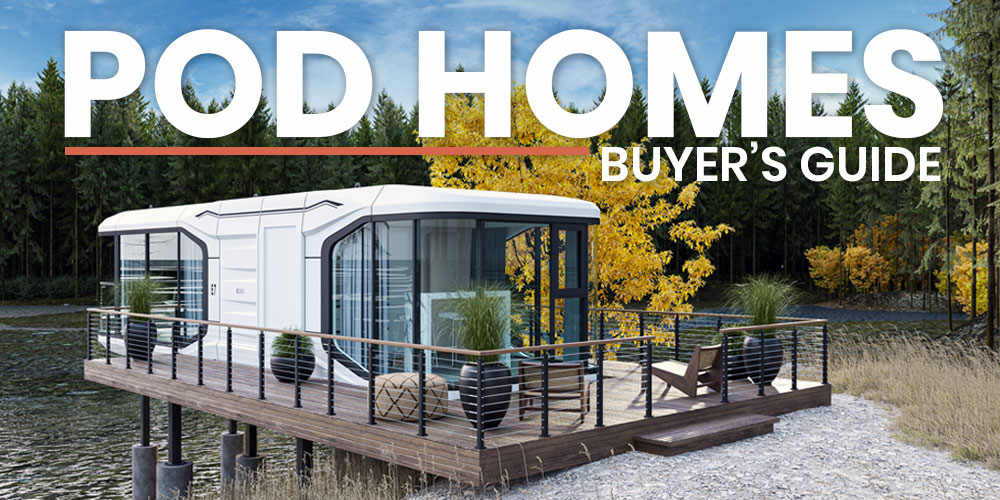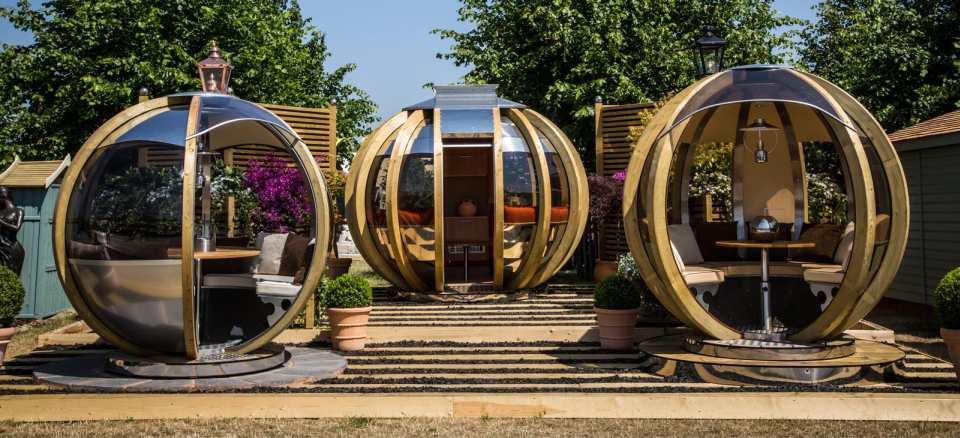Explore the Advantages of Pod Homes for Sustainable and Flexible Living
Why Modular Residences Are the Future of Lasting Living
Modular homes are increasingly recognized as a crucial remedy for lasting living, providing a blend of performance, cost-effectiveness, and ecological advantages. The flexibility of modular layouts enables for the combination of lasting technologies and products tailored to individual requirements.
Ecological Benefits of Modular Residences
The environmental benefits of modular homes represent a considerable step towards sustainable living. These homes are constructed in regulated factory settings, which substantially lowers waste generated throughout the building process. By enhancing materials and minimizing excess, modular building adds to an extra effective usage of resources compared to traditional building techniques.
Additionally, modular homes are often developed with power performance in mind. Numerous incorporate advanced insulation strategies, energy-efficient windows, and lasting products, adding to lower power consumption. This can cause lowered greenhouse gas exhausts over the life-span of the home, enhancing its general environmental account.
The capability to transportation and put together modular parts on-site additionally decreases the carbon impact associated with construction logistics. Numerous modular homes are constructed to be adaptable and quickly upgradeable, allowing home owners to execute lasting modern technologies, such as solar panels and energy-efficient heating systems, over time.
Ultimately, the ecological benefits of modular homes not only promote sustainable living yet likewise encourage an even more accountable method to housing growth, lining up with international initiatives to battle environment change and preserve natural sources for future generations.
Cost-Effectiveness and Price
Structure a home typically stands for among the biggest financial investments individuals make in their life time, and modular homes provide an engaging service for those looking for cost-effectiveness and price. Among the main advantages of modular homes is their reduced construction expenses compared to standard site-built homes. The streamlined manufacturing process permits significant savings on labor and products, which equates to decrease prices for customers.
Furthermore, modular homes generally have shorter building timelines. This not only reduces expenditures associated to funding and insurance policy however also alleviates the risks connected with inflation and fluctuating market conditions. Lots of purchasers find that modular homes can be customized to fit their budgets without sacrificing high quality or design.
Furthermore, energy performance is commonly built right into the design of modular homes, resulting in lowered energy costs over time. Lots of producers prioritize lasting products and techniques, even more enhancing the long-lasting monetary feasibility of these homes. Overall, the mix of preliminary expense savings, quick building and construction, and recurring power efficiency makes modular homes an attractive choice for those seeking to buy sustainable living without damaging the financial institution.
Effectiveness in Building And Construction
Modular homes not just offer financial advantages yet additionally stand out in building and construction efficiency. The modular structure process entails the synchronised building of modules in a factory setting while website preparation occurs concurrently. This parallel strategy considerably decreases the overall timeline from conception to completion, often reducing building and construction time by up to half compared to standard techniques.
In addition, factory-controlled environments enhance high quality assurance. By utilizing precision manufacturing methods, modular homes are constructed to specific requirements, lessening waste and errors. This consistency not just leads to a higher quality item but also contributes to sustainable methods by reducing product waste throughout building and construction.
In addition, using contemporary technology and automation in the manufacturing process permits quicker setting up and lowered labor prices. As soon as the modules are moved to the website, they can be effectively set up, further accelerating the timeline. This streamlined process is not only beneficial for building contractors yet also reduces interruptions to the surrounding setting throughout building.
Customization and Design Adaptability
An outstanding array of personalization choices differentiates modular homes, permitting house owners to tailor their space to fulfill particular needs web and choices. This layout adaptability is a trademark of modular building, enabling customers to pick whatever from layout and room layouts to coatings and fixtures. Unlike traditional homes, modular layouts help with a joint method where designers and building contractors work very closely with home owners, ensuring that each element straightens with aesthetic needs and private lifestyles.
Furthermore, modular homes can be conveniently reconfigured or expanded, suiting changing household characteristics or evolving personal tastes. This flexibility not only improves the home's performance yet additionally adds to lasting sustainability, as home owners can modify their spaces instead of look for new real estate solutions.

Future Fads in Sustainable Real Estate
Arising fads in sustainable housing are improving the landscape of property construction, stressing environmentally friendly methods and ingenious modern technologies. One substantial pattern is the combination of smart home modern technology, which boosts energy performance with automated systems that monitor and optimize power consumption. This not just minimizes energy expenses but likewise adds to a lower carbon footprint.
Additionally, making use of sustainable materials is becoming increasingly common. Home builders are going with recycled, in your area sourced, or swiftly eco-friendly materials, which minimize ecological impact and support local economic situations. Additionally, modular homes are obtaining appeal for their minimized waste during building and their flexibility to numerous terrains and climates.
One more fad is the unification of eco-friendly roofs and living walls, which improve air high quality and supply natural insulation. These attributes additionally advertise biodiversity in metropolitan locations.
Conclusion
In verdict, modular homes arise as a critical option for sustainable living, supplying substantial ecological advantages through lowered waste and energy efficiency. As trends in lasting housing develop, modular homes are positioned to play a vital role in advertising environment-friendly living practices for future generations.
Structure a home typically represents one of the largest monetary investments people make in their lifetime, and modular homes offer an engaging remedy for those seeking cost-effectiveness and cost. One of the primary advantages of modular homes is their reduced building and construction costs contrasted to conventional site-built homes. On the whole, the combination of initial expense financial savings, rapid building, and recurring power effectiveness makes modular homes an eye-catching choice for those looking to invest in lasting living without damaging the financial institution.
Ultimately, the personalization and style adaptability provided by modular homes make sure that they are not just structures, but customized havens that show the distinct identities of their passengers while promoting sustainable living methods.
